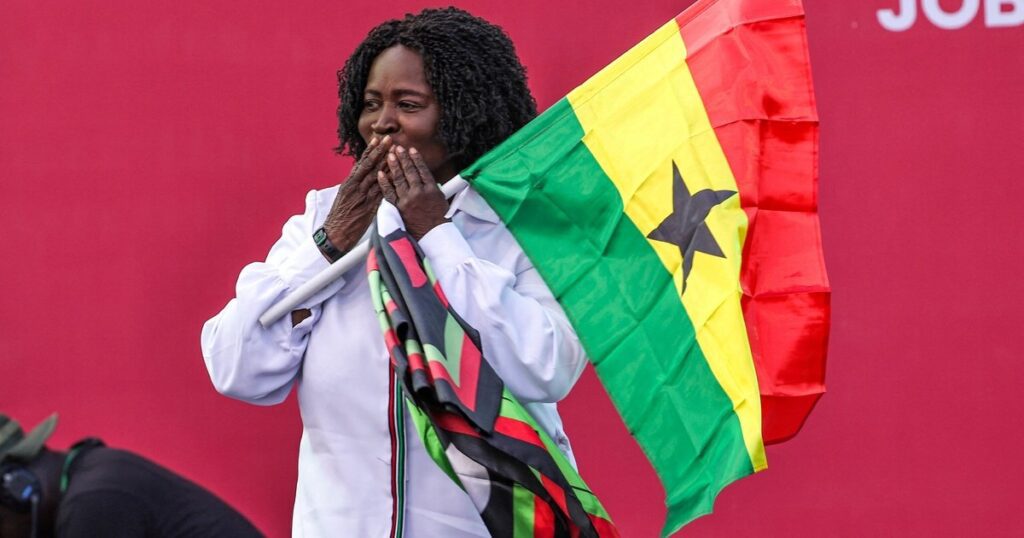Ghana Celebrates Milestone for Gender Inclusivity in Politics
Naana Jane Opoku-Agyemang, a prominent member of the National Democratic Congress (NDC), has made history by being elected as Ghana’s first female vice president. The accomplished professor of literature and former Minister of Education will take office alongside President John Dramani Mahama, who previously held the presidency from 2014 to 2017. Opoku-Agyemang’s election is viewed by many scholars and activists as a pivotal moment for gender equality in a country often characterized by conservative views on gender roles. A 2022 survey revealed that 67 percent of Ghanaians support equal political representation for women. In her acceptance speech, Opoku-Agyemang expressed the weight of her new responsibility, stating, “My nomination has many implications… This victory is for all of us, particularly for our daughters, youth, and women… My role was to open the door, and the real work begins now.”
Women Protest in Kenya Against Rising Femicide Rates
In Kenya, women are taking to the streets in increasing numbers to protest against alarming rates of femicide, which have claimed the lives of over a hundred women in just the last three months. The tragic case of social media influencer Scarlet Wahu has drawn significant media attention to the issue. On Monday, thousands marched in Nairobi, voicing their frustration over the government’s perceived lack of action in addressing this crisis. Activists are calling on President William Ruto to officially declare femicide a national emergency and to implement effective prevention measures. Although Ruto described the violence as a “pressing issue” and initiated a campaign to provide resources to women, activists insist that more substantial actions are required. In a disturbing response to the protests, police used tear gas against demonstrators and arrested several activists. Statistics show that from August to October 2024 alone, ninety-seven women lost their lives to violence, contributing to a staggering five hundred known murders from 2016 to 2024. Community activist Alberta Wambua noted, “We have normalized violence to the point that we are numb. Now we need to promote love.”
UN Condemns Taliban’s Ban on Women’s Medical Training
On Monday, the UN’s Office of the High Commissioner for Human Rights denounced the Taliban’s recent ban on women pursuing formal medical training. Experts have labeled this prohibition as “totally unjustifiable,” given its near-total restriction on women’s access to medical education. The United States government also voiced concerns regarding the detrimental impact this ban may have on women’s rights and health in Afghanistan. Secretary of State Antony Blinken remarked, “This directive, part of a broader pattern of attacks on the rights and lives of Afghan women and girls, is an unjustifiable assault on their access to education and healthcare.” Afghanistan ranks among the lowest globally for women’s health, and experts warn that the absence of trained female medical professionals will only worsen these dire conditions. “Maternal and pediatric healthcare in Afghanistan is already in crisis, with alarmingly high rates of maternal and infant mortality. Should this ban take effect, it would significantly exacerbate the situation with long-lasting consequences,” UN experts warned.


